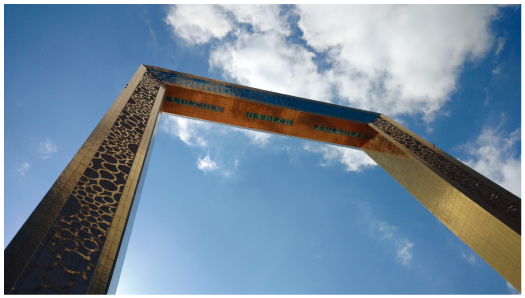Published in Asian-mena Counsel: Mergers & Acquisitions Special Report 2020

E: HPlahe@gibsondunn.com
E: FDawson@gibsondunn.com
E: HChalhoub@gibsondunn.com
E: TBarker@gibsondunn.com
The pandemic will undoubtedly cause lasting economic and societal changes that will affect the way that deals are conducted, write Gibson, Dunn & Crutcher’s Hardeep Plahe, Fraser Dawson, Hanna Chalhoub and Thomas Barker.

Many of us are facing more difficult and imperative personal and business decisions today than before the crisis. However, despite the unprecedented nature of this situation we must believe that life, including economic activity, will begin to return to normal in the near to medium future. In this article we look beyond the crisis to the possible long-term effects on M&A in the Middle East and North Africa (Mena) region.
IMPACT ON INDUSTRY SECTORS
All businesses are adapting to market conditions and restrictions imposed by governments to limit the spread of Covid-19; many economies are bracing for contraction or, at best, feeble growth.
Which industries will be most affected?
While the pharmaceutical, healthcare, food supply and certain logistics industries are experiencing an uptick in demand during social distancing, the vast majority of businesses are dealing with an acute slowdown in operations. The tourism and hospitality sectors have been particularly hard hit and major airlines across the globe are seeking government support to survive the crisis; national carriers in the Middle East are no exception.
Reduced travel has also had a knock-on effect on other industries in tourist hotspots, including retail, leisure and restaurant operators. These ancillary industries are particularly important in the Middle East where strategies to diversify economies away from a dependence on oil and gas revenue has often focused on attracting international tourists.
The asymmetric effect of the pandemic on different sectors means that, post-crisis, businesses will be looking at potential M&A transactions from vastly different perspectives. Some companies will have continuing cash flow issues and may consider spinning off non-core assets or divisions to provide additional liquidity; whereas those that successfully weather the storm may have greater ability to be acquisitive and pursue M&A opportunities.
Even before the spread of Covid-19, consolidation was a major theme of recent M&A in the Mena region, particularly among financial institutions: the US$5 billion merger of Alawwal Bank and Saudi British Bank and the creation of an enlarged ADCB through the three-way merger of local banks being notable examples. We expect this trend to accelerate in banking as well as other industries (such as education and insurance) where companies with complimentary business and geographic footprints may find synergy-achieving mergers attractive.

Private equity and sovereign wealth
In recent years investment professionals have regularly cited inflated asset prices — driven in part by low interest rates and cheap debt — as a significant limiting factor on investment activity. If, however, asset prices fall and remain subdued following the crisis, then asset managers should be able to acquire assets at a significant mark-down to pre-crisis levels, allowing healthy returns in the medium to long term provided that there is not a profound effect on economic activity.
The impact on PE funds could vary significantly depending on the amount of dry powder left to be deployed. At the end of 2019, private equity and venture capital funds had amassed almost US$1.5 trillion globally, according to Preqin — the largest amount ever at year end. But the majority of this capital (approximately 62 percent) is held by funds from the 2018 and 2019 vintages. We expect managers of those funds to be especially acquisitive to take advantage of situations where the proposed purchase price falls below the perceived intrinsic value of the asset. This applies equally to public and private companies and, therefore, we also expect to see an increase in take-private transactions — although the majority of these will probably occur outside of the region given the limited track record and relatively less developed regulatory framework for such transactions in Mena.
Older funds, such as those raised between 2012 — 2017, have generally deployed a larger proportion of their capital and will be focused on managing their portfolios through the crisis — calling further capital as necessary to do so. We may also witness a decline in the number of PE exits generally as funds look to hold assets until economic recovery has started and valuations have bounced back.
 Sovereign wealth funds (SWF) (including those in the Middle East) generally have longer term horizons than traditional PE firms and may, therefore, find themselves having to deal with both scenarios simultaneously — managing existing portfolios and seeking further acquisitions. SWFs also face a third dynamic which shapes their M&A approach — the need to consider the broader economic and policy considerations. Oil prices have fallen significantly in recent months making these considerations particularly relevant in the Mena region where oil revenues constitute a large proportion of government revenue. However, we expect Mena-based SWFs to pursue strategic M&A opportunities at the right price. For example, the Public Investment Fund of Saudi Arabia recently acquired an 8.2 percent stake in a large cruise operator and has also reportedly acquired stakes in certain publicly listed oil producers.
Sovereign wealth funds (SWF) (including those in the Middle East) generally have longer term horizons than traditional PE firms and may, therefore, find themselves having to deal with both scenarios simultaneously — managing existing portfolios and seeking further acquisitions. SWFs also face a third dynamic which shapes their M&A approach — the need to consider the broader economic and policy considerations. Oil prices have fallen significantly in recent months making these considerations particularly relevant in the Mena region where oil revenues constitute a large proportion of government revenue. However, we expect Mena-based SWFs to pursue strategic M&A opportunities at the right price. For example, the Public Investment Fund of Saudi Arabia recently acquired an 8.2 percent stake in a large cruise operator and has also reportedly acquired stakes in certain publicly listed oil producers.
In the longer term, PE firms, SWFs and large multinational conglomerates may try to rebalance their portfolios by mixing in assets in defensive industries (such as healthcare and supermarkets) in an attempt to hedge against future pandemics.
Globalisation vs nearshoring
Finally, the effect of the pandemic on social norms is expected to reshape several industries in the Middle East. For example, we expect regional governments to ramp up nearshoring to reduce reliance on imports thereby reversing some effects of globalisation. Corporates who experienced disrupted supply chains during the pandemic may also establish localised production centres and storage facilities. This could create investment opportunities for both foreign and regional investors to support growth in these sectors.
IMPACT ON M&A TRANSACTIONS AND DEAL DOCUMENTATION
While many market participants are adopting a wait-and-see approach at the moment, M&A opportunities that arise in the post-outbreak era will inevitably present new issues borne out of recent experiences.
 Due diligence
Due diligence
Buyers will consider the robustness of the target to handle similar situations in the future and may, therefore, request specific warranties designed with Covid-19 in mind. On some transactions, buyers may also appoint specialist advisers to carry out diligence on pandemic-related issues. As for legal due diligence, advisers will have a renewed focus on termination rights and whether force majeure clauses could be applicable during a future pandemic.
Stressed and distressed M&A situations often have truncated deal timetables which make it difficult to conduct full due diligence on the target group. Buyers will, therefore, need to consider what can be achieved in the time available and whether this will provide them with sufficient comfort. To compound this, sellers in a distressed situation may be unwilling to provide a full warranty package on the status of the target group. This protection gap is something which any potential buyer will need to balance against the potential upside or seek to mitigate through R&W insurance or deferred consideration mechanisms.
Valuations and purchase-price adjustments
A key issue for those considering a potential transaction following the crisis is whether accounts from the 2020 financial year are an appropriate basis to accurately reflect the target business’s value. If the company suffered a sharp fall in revenue during the pandemic, then using an Ebitda multiple based on accounts covering that period may significantly undervalue the business (particularly if the business is showing signs of a strong recovery). It may, therefore, be more appropriate to use adjusted Ebitda or alternative accounts from periods that did not overlap with the coronavirus-related downturn. Using an Ebitda multiple might become a blunt tool in determining the purchase price but potential alternatives — such as using discounted cash-flows or valuations of similar publicly-listed businesses — have their own limitations.
Purchase-price adjustment mechanisms also need to be carefully considered. Locked‐boxes are less likely to be acceptable to buyers if the date of the locked-box accounts is prior to the pandemic given that they will be on‐risk for the performance of the business from that date. By way of comparison, if the locked-box date is set after the crisis has subsided, buyers may see an opportunity to take advantage of any upside in the target business as the recovery takes effect.
Traditional price adjustment mechanisms may also require modification. For example, normalised working capital levels may need to be adjusted as businesses stock-pile to minimise future disruption. Moreover, sellers may have taken drastic measures to maintain sufficient liquidity at the target‐company level and may want to seek collars to permitted working‐capital adjustments to avoid being unduly penalised as they continue to manage the situation.

Consideration structures
The reasons for pursuing a potential transaction in the aftermath of the pandemic will drive the type of consideration a seller is seeking. Where a seller is in financial difficulty, all-cash offers payable immediately on completion will be given a premium over offers with an element of non-cash or deferred consideration.
When a longer term view is being taken by the seller and high valuation is of greater importance vis-a-vis immediacy of funds, deferred consideration structures are likely to become more prevalent. The target business’s ability to rebound is likely to remain uncertain and, therefore, earn-outs based on the future performance or the retention of equity by the seller may prove attractive to both buyers and sellers. Earn-outs may also help to de-risk some of the uncertainty regarding valuation methods discussed above.
If debt financing proves costly, non-cash consideration structures (whether for all or part of the purchase price) may become a common alternative to all cash deals. Non-cash assets are not ideal for private equity and other financial institutions who need to provide returns to their investors, but listed equities may be acceptable where there is a liquid market for the securities and yield-paying loan notes may also be attractive in a post-crisis low-interest rate world.
 Closing conditions
Closing conditions
Even prior to the Covid-19 outbreak, it was well known that establishing that a material adverse effect or material adverse change had occurred was extremely difficult in most jurisdictions — especially when such provisions had been drafted without a particular situation in mind. As a result, we may see a trend of specific closing conditions being requested by buyers relating to the financial or operational performance of the business if a new pandemic arises prior to closing of the transaction.
Sellers may also want the ability to extend the longstop date to satisfy regulatory closing conditions if they become delayed due to government departments/regulators operating at reduced capacity (or closing altogether) during a future lockdown period.
Changes to the M&A process
At their most basic, M&A transactions rely on two parties (buyer and seller) working together to achieve a shared goal — the disposal/acquisition of the target business or assets — and the success of an M&A transaction is often dependent upon the parties building a strong relationship throughout the process. This is often easier to do through face-to-face meetings, where individuals can look their counterparts in the eye and get a sense of comfort that a fair outcome has been reached. Changing cultural norms may see less business travel and a greater reliance on technology throughout the negotiation process making that trust and comfort harder to come by.
Technology will also play a greater role in M&A through virtual closings and the use of electronic signatures, especially in the Mena region where physical closings have been common. In the longer term, we also expect processes in M&A transactions to be modernised, such as the need for physical execution of share transfer instruments in the presence of a public notary or the need for physical filings. For example, the UAE has recently announced that meetings with notaries will be available through an online portal to ensure business continuity during the imposed work-from-home policy.
CONCLUSION
While the full impact of the Covid-19 pandemic is impossible to predict, it is increasingly clear that there will be long-term changes to the global economy and societal behaviour as a result. The M&A market is no different and we will see deal activity, practices and processes change to address the reality of the situation post-crisis.
![]()
E: HPlahe@gibsondunn.com
E: FDawson@gibsondunn.com
E: HChalhoub@gibsondunn.com
E: TBarker@gibsondunn.com
![]() Click Here to read the full issue of Asian-mena Counsel: Mergers & Acquisitions Special Report 2020.
Click Here to read the full issue of Asian-mena Counsel: Mergers & Acquisitions Special Report 2020.



















